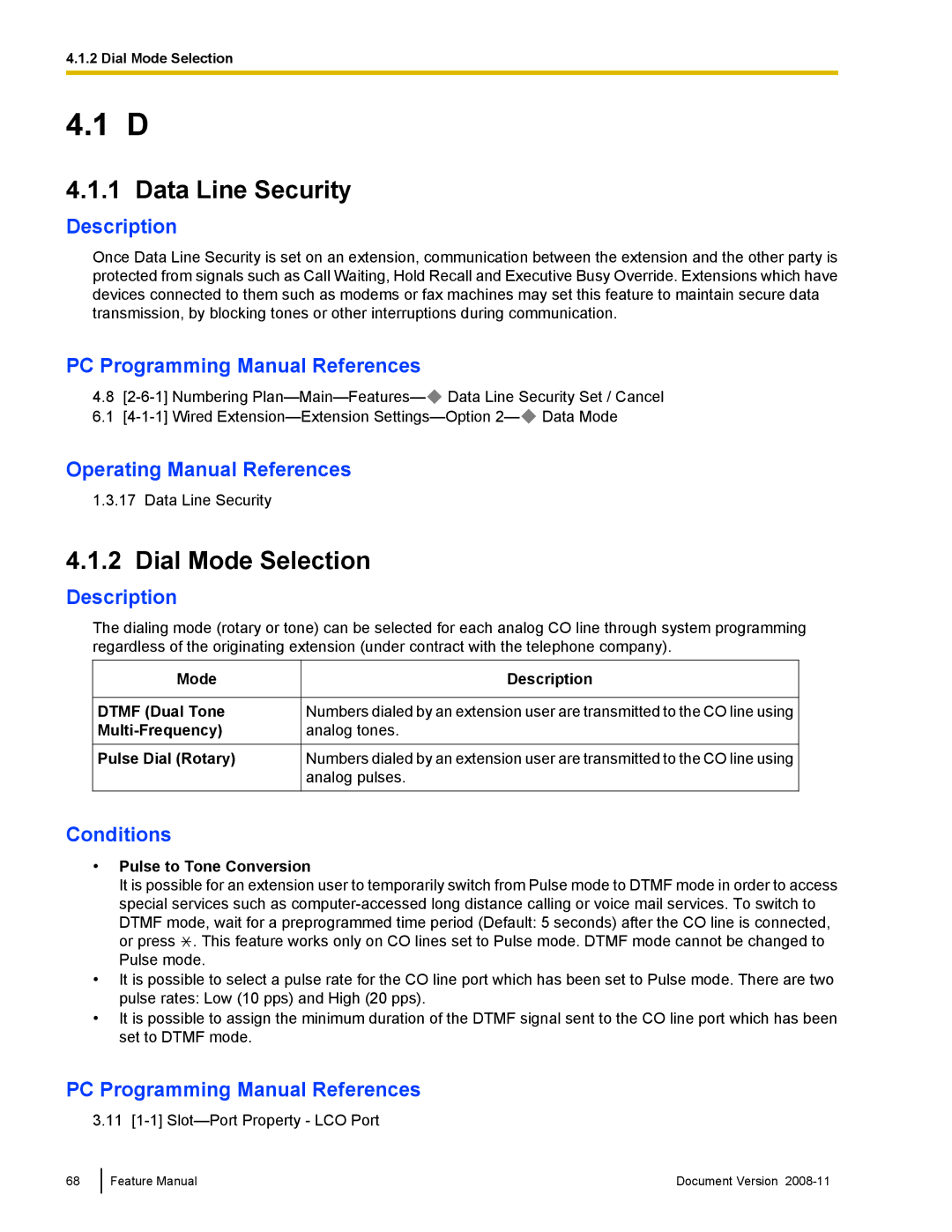
4.1.2 Dial Mode Selection
4.1 D
4.1.1 Data Line Security
Description
Once Data Line Security is set on an extension, communication between the extension and the other party is protected from signals such as Call Waiting, Hold Recall and Executive Busy Override. Extensions which have devices connected to them such as modems or fax machines may set this feature to maintain secure data transmission, by blocking tones or other interruptions during communication.
PC Programming Manual References
4.8![]() Data Line Security Set / Cancel
Data Line Security Set / Cancel
6.1![]() Data Mode
Data Mode
Operating Manual References
1.3.17Data Line Security
4.1.2Dial Mode Selection
Description
The dialing mode (rotary or tone) can be selected for each analog CO line through system programming regardless of the originating extension (under contract with the telephone company).
Mode
DTMF (Dual Tone
Pulse Dial (Rotary)
Description
Numbers dialed by an extension user are transmitted to the CO line using analog tones.
Numbers dialed by an extension user are transmitted to the CO line using analog pulses.
Conditions
•Pulse to Tone Conversion
It is possible for an extension user to temporarily switch from Pulse mode to DTMF mode in order to access special services such as ![]() . This feature works only on CO lines set to Pulse mode. DTMF mode cannot be changed to Pulse mode.
. This feature works only on CO lines set to Pulse mode. DTMF mode cannot be changed to Pulse mode.
•It is possible to select a pulse rate for the CO line port which has been set to Pulse mode. There are two pulse rates: Low (10 pps) and High (20 pps).
•It is possible to assign the minimum duration of the DTMF signal sent to the CO line port which has been set to DTMF mode.
PC Programming Manual References
3.11
68
Feature Manual | Document Version |
